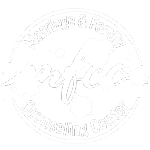What I often hear from couples, after they have made progress in their goals identified in the counseling process, is that they wish they had learned some of these “basics” sooner. To which, the question normally comes up, “What is ‘basic’ for a relationship?”
I am glad you asked. Being able to verbalize practical steps to “why” we should communicate the way that we do – is not something that is typically learned by observation alone. Just because you might have had parents that communicated brilliantly – and you were able to have a front row seat to their ideal interactions for several years – does NOT mean you will know how to have a similar experience yourself.
First off, YOU are only HALF of the equation. EVERY couple will have to navigate their different assumptions, traditions, expectations, emotional awareness, values, beliefs, preferences, etc. on their own time. What can help facilitate that process on an individual level is healthy personal boundaries?
These are at least two basics to beginning this process:
- Increasing your capacity to own your personal thoughts and feelings on a topic (to be able to answer the question, “Why did I react that way to this?” etc.)
- AND, to be willing to ask and listen to the other person’s thoughts and feelings on that topic – with a non-judgmental intention of reaching an understanding of their experience.
Having the confidence in your relationship that no matter what either of you experience, you can trust that you will hear (and be heard) with the intention of understanding (and being understood) BEFORE a unilateral decision will be made by either of you about the other person… This is a healthy foundation of trust and safety for the relationship.

After you have established that norm, then we can go into, “So, we understand each other. Now what?”
I am glad you asked. The ability for a couple to take on a challenge to their relationship, adapt, and continue to work together towards their pursuit of happiness, is a staple that will be used their whole life long. It is the ability to learn from mistakes or to overcome obstacles that you did not plan for – and to be willing to encounter these conditions regularly.
The next step is taking this mutual understanding of thoughts, feelings and beliefs on a topic. Then look for willingness in each other to find agreement for change for your future on that topic (What will we do differently when/if this disagreement or misunderstanding comes up again in our future?) Between the two of you (and the resources that you both have at your disposal – wise parents, friends who have gone through something similar, local community supports, counselors, etc.), you should be able to at least come up with a few ideas on how to go through what you just did, but a “little bit” better. Coming to an agreement and giving each other permission to remind each other of your “little bit better” plan – doing it, and then talking again and seeing if it can still yet improve. This is the life-long practice of a couple willing to work together as an ever-evolving masterful team, dealing with life’s difficulties together.

Written by Michael Ordway, PLPC. Michael is a Provisional Licensed Professional Counselor at Marriage & Family Counseling Center. He primarily works with couples and relationships.
Ready to invest in your relationship? Schedule a session now to begin improving your relationship!
Join one of our monthly newsletters to keep up with upcoming events, important information about MFCC, mental health and wellness tips. Choose from our general newsletter or topics specific to couples and relationships, family and parenting, or spiritual abuse and religious trauma.
We promise not to spam or pass out your information to anyone. And of course, you are always welcome to unsubscribe at any time.







